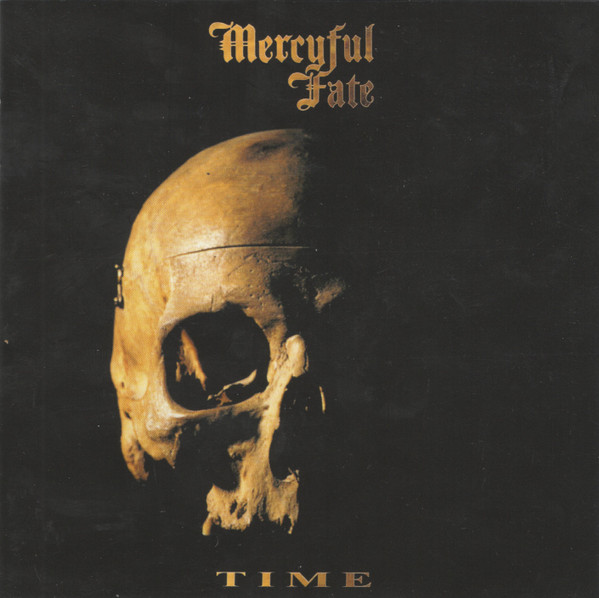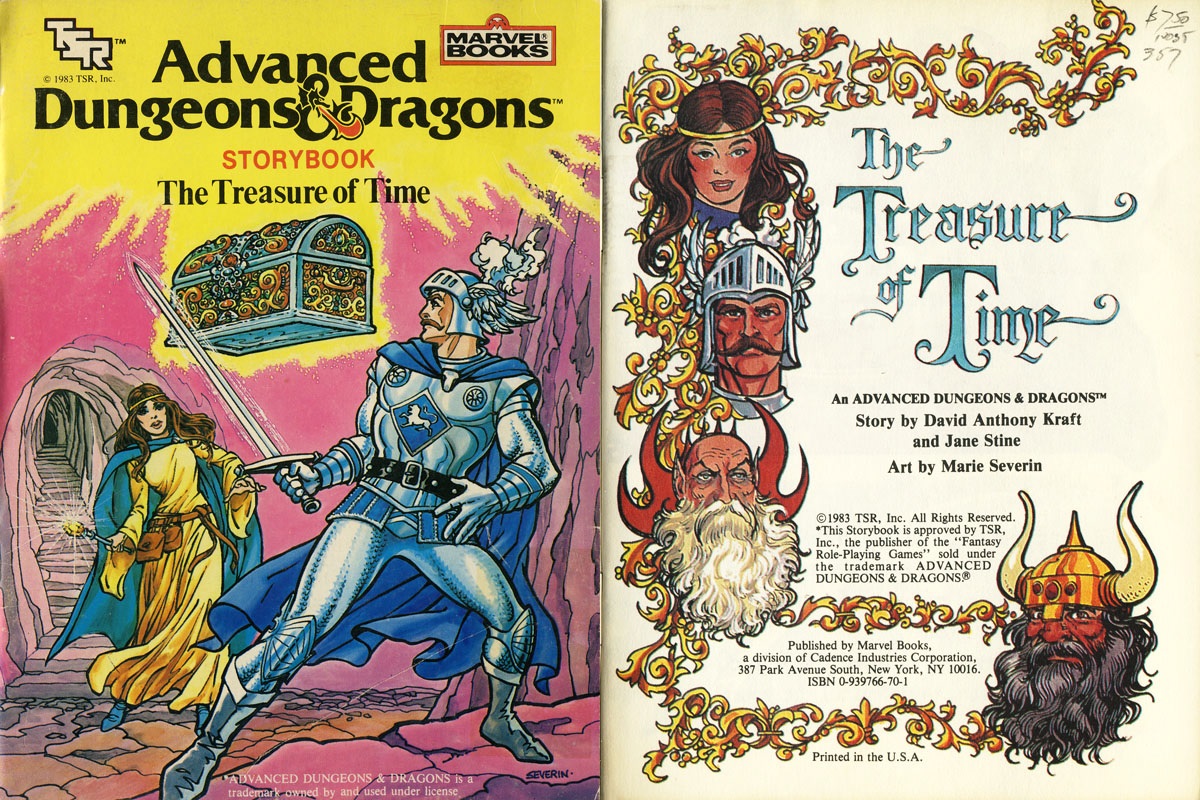
-

-
|
|
 |
|
 |
|
|
|
|
|
|
|
|
|
|
|
|
|
TIME IN THE CAMPAIGN
Game
time is of utmost importance.
Failure to keep careful
track of time expenditure by PCs will result in many anomalies in THE
GAME. <alt>
The stricture of time is
what makes recovery of HP meaningful.
likewise,
the time spent adventuring
in wilderness areas removes concerned characters
from their bases of operation --
be they rented chambers
|| battlemented strongholds.
Certainly the most important
time stricture pertains to the manufacture of magic
items,
for during the period of
such activity no adventuring can be done.
Time is also considered
in gaining levels && learning
new languages and more.
All of these demands upon
game
time force choices upon PCs,
and likewise # their days
of game life.

One of the things stressed
in the original
game of D&D
was the importance <>
of recording game time with
respect to each and every PC in a campaign.
In AD&D it is emphasized even more:
YOU
CAN NOT HAVE A MEANINGFUL CAMPAIGN IF STRICT
TIME RECORDS ARE NOT KEPT.
<^d^>
Use whatever grouping of
days you find desirable for your milieu. There
is nothing wrong with 7
day weeks and 31, 30 and 28/29 day months
which exactly correspond
to our real system. OTOH, there is
nothing to prevent you from
using some other system if it pleases you
and you can keep it straight.
What is important to the campaign is that
you do, in fact, maintain
a time record which logs the activities and
whereabouts of PCs and their
henchmen.
For the sake of example,
let us assume that you begin your campaign on
Day 1 of the Year 1000.
There are four PCs who begin
initially,
and they have adventures
which last a total of 50 days - 6 days of
actual adventuring and 44
days of resting and other activity. At this point
in time two new players
join the game, one of the original group decides
to go to seek the advice
of an oracle after hiring an elven henchman,
and the remaining three
"old boys" decide they will not go with the newcomers.
So on Day 51 player A's
character is off on a dangerous journey, those <alt>
of B, C, and D are resting
on their laurels, and E and F enter the dungeon.
The latter pair spend the
better part of the day surviving, but do well
enough to REST
a couple of game days and return for another try on Day
54 - where they stumble
upon the worst monster on the first level,
surprise
it, and manage to slay it
and come out with a handsome treasure.
You pack it in for the night.
Four actual days later
(and
it is best to use 1 actual day = 1 GAME day when no play is happening),
on Day 55, player characters
B, C, and D enter the dungeon and find that the AREA they
selected has already been
cleaned out by player characters E and F. Had
they come the day after
the previous game session, game Day 52, and
done the same thing, they
would have found the monster and possibly
gotten the goodies! What
to do about that? and what about old A and his
pointy-eared chum off to
see the oracle?
Some
penalty must accrue to the non-active, but on the other hand,
the over-active can not
be given the world on a silver platter.
Despite time differences,
the activities of the newcomers to the campaign should be
allowed to stand, as Destiny
has decreed that the monster in question
could not fall to the characters
B, C, and D. Therefore, the creature was
obviously elsewhere (not
dead) when they visited its lair on Day 52, but
it had returned on Day 56.
Being awore of time differences between
groups of player characters
will enable you to prevent the BIG problems.
You
will know when the adventuring of one such group has gone far enough ahead
in
game time to call a halt.
This
is particularly true with regard to town/dungeon
adventures.
Returning to PC A and his
trek to visit a far-off source of
supernatural lore, he and
his elven companion set off on Day 51, journey
across the land for 11 days,
visit the oracle and remain 3 days, then come
back in another 11 days
(wonder of wonders!). This comes to a total of 25
days all told, counting
Day 51, so they come "home" on Day 75 and are
set to adventure on Day
77, let us suppose, as a brief REST is in order.
Allowing that activity to
be not unusual for a single session of play, then
PC A and his henchman
are ready to play about the same
actual time as the other
players - only A is at Day 77, 8, C, and D are at
Day 54, and E and F are
at Day 58. The middle group must go first, and
alone, or it can opt to
"sit around' waiting for A or for E and F or for both
parties, or they can operate
alone for another short adventure in
terms of
game time, thus taking advantage
of their temporal position.
Other
options include any of the players singly or in time-related groups going
off on
outdoor adventures.
In
the case of players so segregating their characters, it then becomes necessary
for you,
as DM,
to inform prospective participants
in a game session that there is a hiatus which will
necessitate only certain members of their number playing together,
as their respective characters
cannot locate the others of the separated groups.
At this juncture they should
be informed of their options, and if
players B, C, and D do not
choose to take advantage of their favored
position, then game
time will pass more swiftly for them, as the other
participants must be allowed
to adventure - in the dungeon if they sa
desire Thus, players E and
F would have the choice of awaiting the return
of A or of going on adventures
which involved only the two characters. In
effect, player character
A is out of it until game time in the central playing
area reaches Day 75, when
communications can be made- or until other
player characters contact
him on his return from the oracle, let
us say,
assuming nothing important
transpired during the return trip.
In effect, the key is the
relative import of the PCs' actions in the time frame.
Generally,
time passes day-for-day, or turn for X number of real minutes during active
play.
Players who choose to remove
their characters from the center of dungeon activity will find that
"a lot has happened while
they were away",
as adventures in the
wilderness certainly use up game days with rapidity,
while the shorter time scale
of dungeon adventuring allows many game sessions during a month or two
of game time.
Of course, this might mean
that the players involved in the outdoors someplace will either have to
come home to "sit around"
or continue adventuring
in wildernesses and perhaps in some distant dungeon as well (if you are
kind);
otherwise, they will perforce
be excluded from game sessions which are taking place during a period of
game time in which they were wandering about in the countryside doing other
things.
This latter sanction most
certainly applies to characters learning a new language,
studying and training for
promotion in level, or
off someplace manufacturing
magic items.
At some point, even the stay-at-homes
will be forced to venture forth into the wilderness due to need, geas,
quest,
or possibly to escape the wrath of something better avoided.
The time lines of various
PCs will diverge, meet, and diverge again over the course of game years.
This makes for interesting
campaigns and helps form the history of the milieu.
Groups of players tend to
segregate themselves for a time, some never returning to the ken of the
rest, most eventually coming back to reform into different bands.
As characters acquire henchmen,
the better players will express a desire to operate some of theirs independently
while they, or their liege
lord, are away.
This is a perfectly acceptable
device, for it tends to even out characters and the game.
Henchmen tend to become
associates -- or rivals -- this way, although a few will remain as colorless
servitors.
You may ask why time is so
important if it causes such difficulties with record-keeping,
dictates
who can or can not go adventuring during a game session,
and disperses
player characters to the four winds by
its strictures.
Well, as initially pointed
out,
it is
a necessary penalty imposed upon characters for certain activities.
Beyond that, it also gives
players yet another interesting set of choices and consequences.
The latter tends to bring
more true-to-life quality to the game,
as some
characters will use precious time to the utmost advantage,
some
will treat it lightly,
and some
will be constantly wasting it to their complete detriment.
Time is yet another facet
which helps to seporate the superior players from the lesser ones.
If time-keeping is a must
from a penalty standpoint, it is also an interesting addition from the
standpoint of running a campaign.
Question: When a character
is in a dungeon, the passage of time is usually quicker than normal.
But when you take a character
“out of action” to learn a new language, for example, does normal time
apply to the character?
Answer: With respect
to a character, all activities are defined in
terms of “game time.”Review
page
37 of the DMG for a full explana-
tion of time. — J. Ward,
W. Niebling
(Clarification: Normal
time applies on a 1 real day : 1 game day when the characters are "out
of action").
TIME IN THE DUNGEON
Keeping track of time in
the dungeon (or on any other type
of adventure)
is sometimes difficult,
but it is at least as important as the accurate recording of time in the
campaign.
As has been mentioned elsewhere,
the standard
time breakdown is ten<10> one-minute rounds to the turn,
and six<6>
turns to the hour.
All referees should keep
a side record of time on a
separate sheet of paper,
marking off the turns as they pass
(melees
or other actions which result in fractional turns should be rounded up
to make complete turns).
It is essential that
on accurate time record be kept so that the DM can determine when to check
for wandering monsters, <(OSRIC.138: 1 in 6, check once every 3 turns)>
ond in order to keep a strict
check on the duration of some spells (such as bless,
haste,
strength, etc.).
The DM must also know how
long it has been since the last time the party took a REST.
A
party should be required to REST at least
[1] TURN in [6]
(remember, the avg. party packs a lot of equipment),
and in +addition+, they should rest [1]
turn after every time they engage in combat or
any other strenuous activities.

Quote:
Originally Posted by grodog
Hi again Gary---
In the AD&DDMG, you wrote useful guidelines about the importance of time management for campaign play. How important was time management in the GH campaign when you ran it (both alone, and with Rob), and how did you manage to keep straight the multitudes of PCs running around in the Castle, City, and Outdoors???
I've always found time management to be something that I've enjoyed about campaign-level DMing, but haven't generally found much in the way of tools to assist in that endeavor. Any thoughts, anedotes, or examples of how to do it (well or poorly) beyond what you detailed in the DMG would be appreciated.
Thanks, as always!

Howdy Alan,
The reason that most regular
players in the campaign had two or more PCs was for the very reason you
mention,
timelines in the
campaign.
Dungeon
adventures are relatively short in that regard,
and thus they are easy to
keep track of.
A sheet of paper with a
running count of days suffices until some of the group heads for an outdoor
adventure.
Then one must keep tract
of days, weeks, and possibly months.
Neither Rob nor I were sticklers
for exact dates.
When the main party of players
was enagaged in a trek somewhere,
others could do likewise,
delve underground,
or just sit sround and await
the return of the main PCs.
A rough estimate of time
passed relative to the separate PC groups sufficied for eventual rejoining.
When only one or two PCs
were off on a long adventure somewhere,
we would usually SPEED time
for the others if they wanted to eventually catch up with the wanderer(s).
Group play is far more important than timekeeping an an RPG.
Cheerio,
Gary